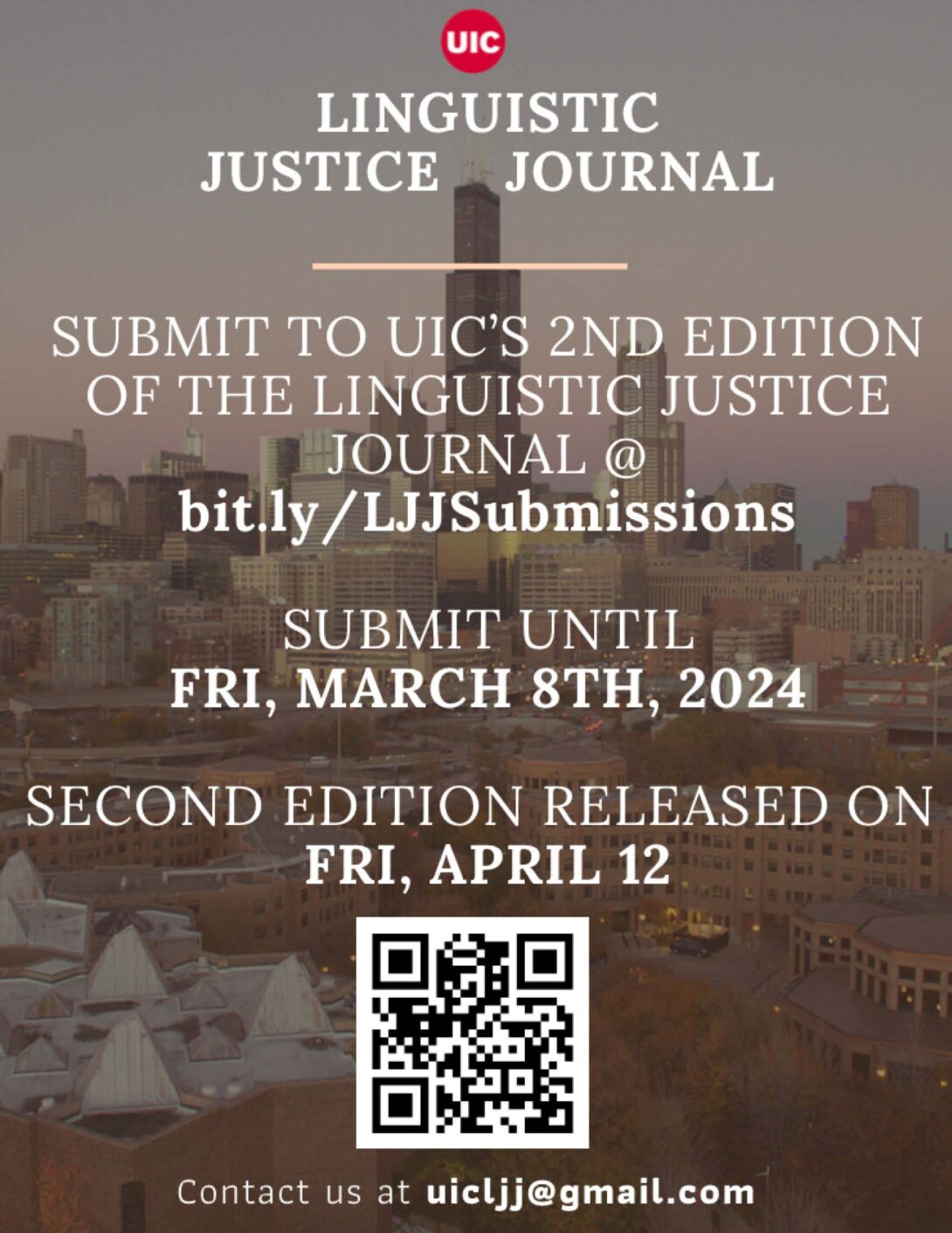UIC Linguistic Justice Journal

Building on the success of its first publication in the spring of 2023, UIC is pleased to announce the upcoming release of the Linguistic Justice Journal’s second edition. The first edition, written entirely by undergraduate students, offered a thorough examination of individual semantic and grammatical journeys from a variety of linguistic perspectives.
The UIC Linguistic Justice Journal (LJJ) is the only undergraduate platform devoted to linguistic justice at the university, having been founded in November 2022. Students from a variety of backgrounds can use it as a platform to share their language experiences through essays, artwork or poetry. The publication seeks to create a community that promotes storytelling, confronts prejudices and strikes up thought-provoking discussions.
The key to the journal’s mission is the notion of linguistic justice–transcending language to include diversity in race, socioeconomic class, ethnicity and ability. This ideological paradigm addresses themes of privilege, colonialism and inequality while challenging the predominance of English and knowledge that is Western-centered.
The UIC Linguistic Justice Journal invites the campus community to engage in their work, which acknowledges the critical role that linguistic variety plays in forming an equitable and just society. As the April 2024 release of its second edition approaches, journal submissions in line with the goal of examining linguistic conventions and redefining its standards are open to all members of the UIC community.
This project is guided by Margena Christian, EdD, senior lecturer in the department of english. The editorial board consists of returning student editor, Natalia Madrigal, and new student editors, Ella Rappel and Ty Andrus. The LJJ was born through the efforts of Mark S. Bennett, PhD, director of the UIC First-Year Writing Program (FYWP) and assistant professor in the department of english, and Sarah Primeau, PhD, assistant director of the FYWP.
“Linguistic justice, and ways to teach academic writing that aren’t bound to strictures of standard edited English, has been a topic we’ve been talking about for years at UIC,” said Bennett. “It’s with resources like the LJJ that we can now offer examples of how UIC students can write successfully in non-standard forms, which is a valuable reference for teachers and students alike.”
Take part in the conversation by reading through a selection of first-person narratives and persuasive essays that can be found on the journal’s website: https://linguisticjusticejournal.digital.uic.edu/ljj/linguistic-justice-journal/
Additionally, the LJJ first edition can be accessed here: https://linguisticjusticejournal.digital.uic.edu/ljj/issue-i/